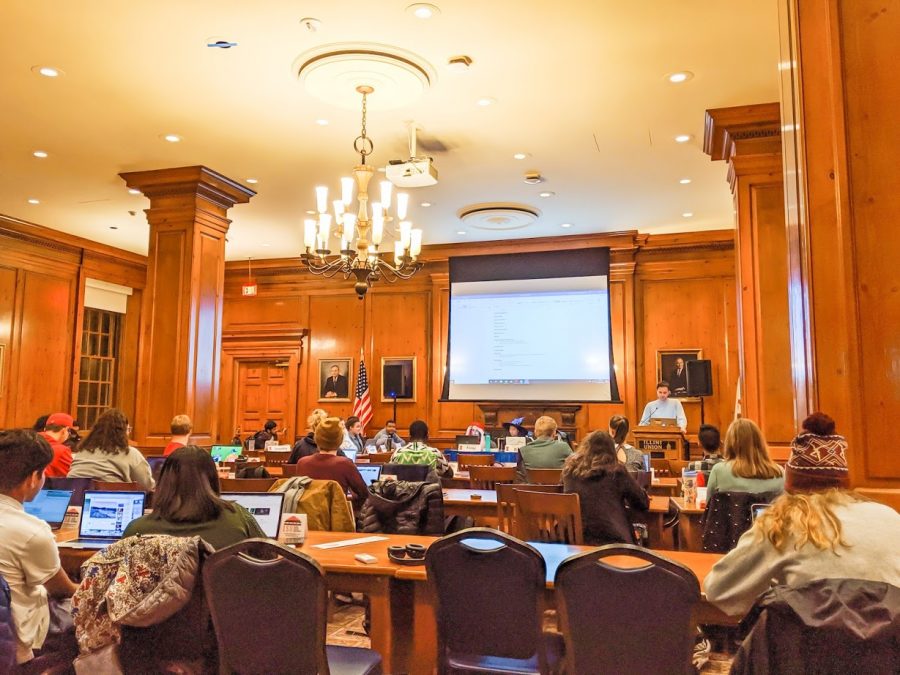Illinois Student Government investigates member privacy breach
Illinois Student Government meets at the Illini Union on Oct. 30.
Nov 18, 2019
Prior to the decision on Resolution 03.29, a bill distinguishing anti-Zionism from anti-Semitism, many members of the Illinois Student Government were contacted in an attempt to sway their votes.
The majority of the members contacted reported being asked to vote against the resolution, which had already drawn up considerable controversy around campus. Members were contacted through phone calls, text messages and emails.
According to student body President Connor Josellis, junior in Media, it’s not unusual to receive feedback from the community, and member emails are publicly available, but many senators are worried about how their personal phone numbers were dispersed.
“We serve, really, to represent the student body, and so with that, obviously, we’ll have people talking to us about certain motions and resolutions,” Josellis said. “Again, I think a concern for a lot of the student senators was their privacy, as they are students, and how that information ended up getting out.”
According to Josellis, the police may have been contacted about the situation by ISG members, and the Vice Chancellor’s office is further investigating the incident.
Get The Daily Illini in your inbox!
There is yet to be any more clarification as to the source of the messages and how member phone numbers were accessed, although it has been rumored that emergency contact information may have been released and used to obtain the numbers.
Once the source of the calls and texts is made clear and how the source actually found members’ phone numbers is understood, it will be easier to identify steps that can be taken to prevent a situation like this from happening again in the future.
“In term of steps being taken to make sure this doesn’t happen again, since we don’t really know, kind of, where this originated, or really, (whether) it is legal, there’s no, really, concrete steps made right now,” Josellis said.
It seems members of ISG were contacted at random, as there appears to be no common thread between the people who received the messages. Members of both the executive and senate branches of the ISG were contacted prior to the vote, but only members of the Senate voted on the initial resolution; only after the resolution passed did the executive branch vote to approve it.
“To my knowledge, senators that were in support of the resolution and those who were against it were also contacted,” said Ali Mirza, junior in LAS and ISG chief of staff. “I really think that it was a random process because … I don’t really see the point of contacting people if they were already gonna vote no.”
The ISG stressed, while this incident represented a violation of privacy for many members, they strive to be attentive to the feedback that students of the University, whom they represent, give them.
“Student government’s a public forum, and people can come and voice their opinions, and senators are elected to represent people’s voices,” Mirza said. “If people want to email them, that’s fine, but I think that texting and calling can sometimes go beyond that line of what’s OK as a means of contact and what isn’t.”
All ISG member emails can be found on the ISG website if a student would like to contact them.
Alex Suñé, associate director for student success and engagement and adviser to the ISG, who, along with Jim Hintz, associate vice chancellor for student success and engagement, are currently looking into the incident, stated that at present there is no new information on the topic to share.






